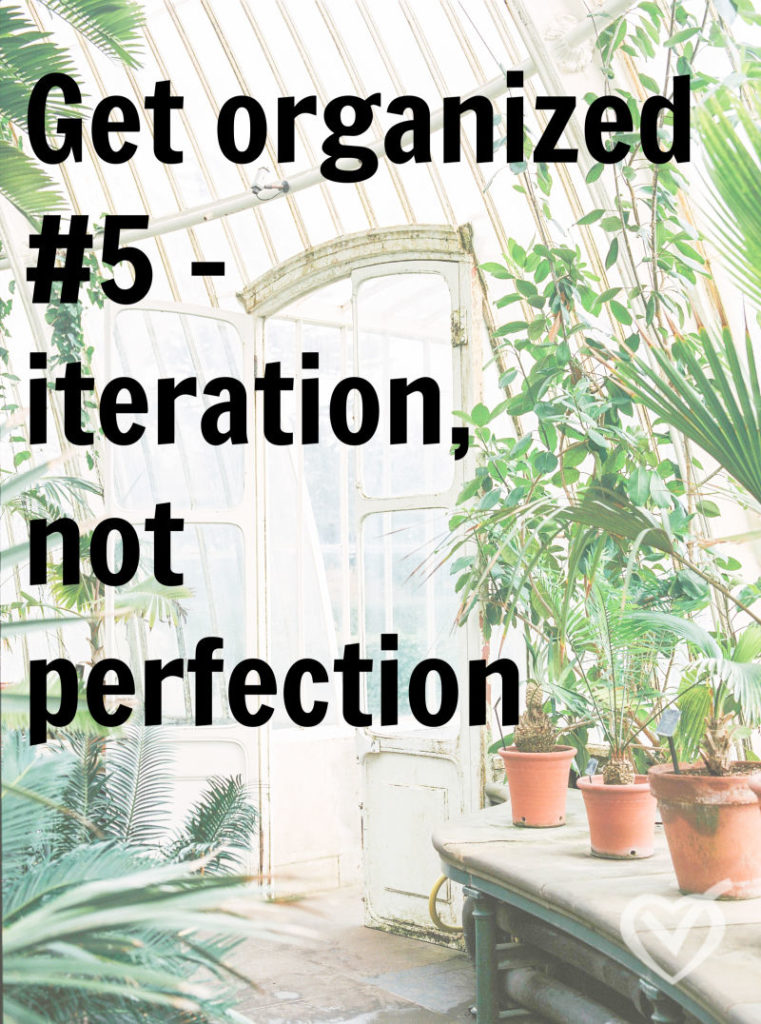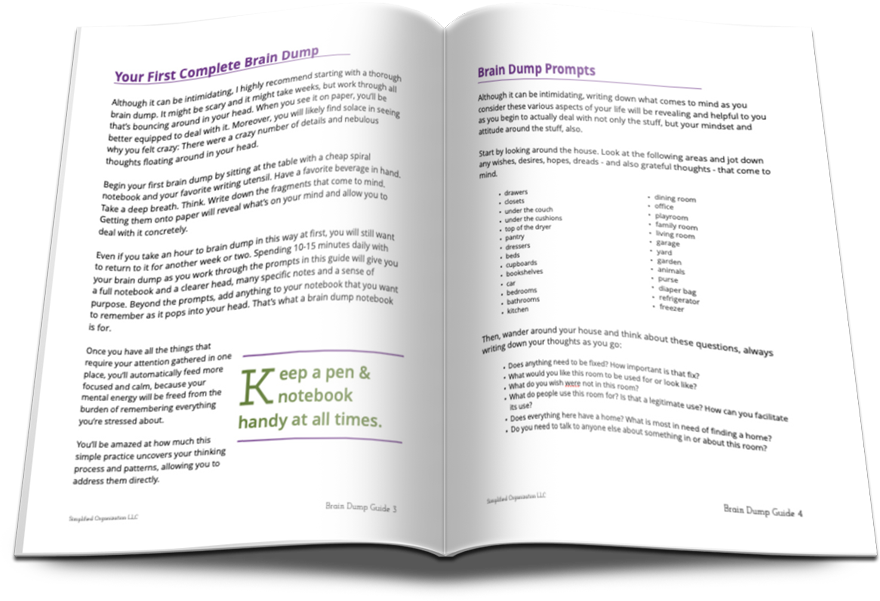
Perfectionism slows us down and prevents us from making real, meaningful progress. If you want to know how to organize your life, know that one of the first things you have to do is overcome perfectionism.
Perfectionism paralyzes our organization attempts. We need strategies for beating perfectionism so we get organize life and get things done.
Iteration, or iterating plans, is how I beat my own perfectionist tendencies. If you’re a recovering perfectionist, this strategy will end your procrastination as well as help you just get started.
Perfectionism is a mindset. It is all in our heads. So we beat it by starting with our attitudes.
We need a thinking strategy that will help us to talk back to perfectionism. I call this strategy iteration. Iteration means that we take a small steps forward, looking back to assess and learn after each step. Instead of holding out for the ideal or trying to jump to the final goal, iteration looks for progress and learns and grows and adapts as progress is made.
Perfectionism paralyzes our organization.
We need strategies for beating perfectionism so we get organize life and get things done.
Iteration, or iterating plans, is how I beat my own tendencies toward perfectionism. If you’re a recovering perfectionist, this strategy will help you learn how to just get started.
Iteration, not Perfectionism
Iteration isn’t just baby step by baby step progress, but also includes evaluation so that each step is informed and so that we remain flexible.
One way to start iterating is to break down your year into chunks and do interval planning. Instead of making a large, ambitious goal and a long-term plan to get there, you make incremental goals, work on a smaller chunk of the project or outcome, then assess and choose the next right small goal between intervals. By continuing to move forward and remaining flexible, we can beat perfectionism and see momentum in our lives.
How do you know what you’re procrastinating?
Dump all those swirling thoughts out of your head.
Yes, simply writing it all down will help to
- Reduce stress by getting your thoughts onto paper
- Reduce frustration by assigning homes to stuff, tangible & intangible
- Reduce anxiety by knowing what you have on your plate

